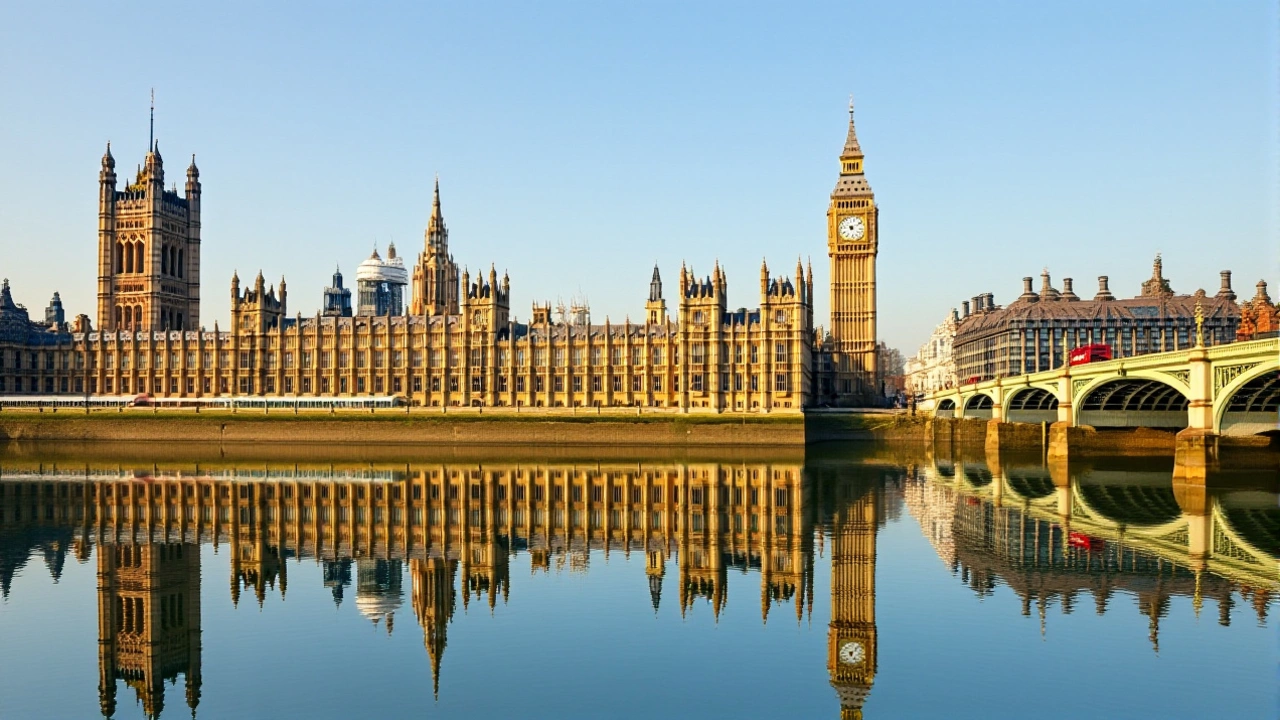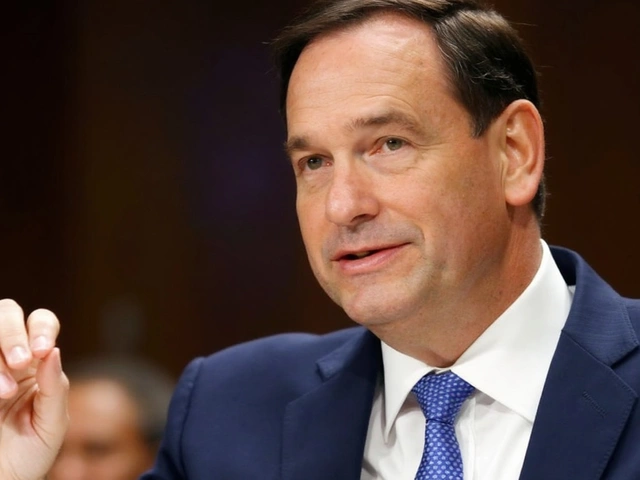Chancellor Reeves Announces 3-Year Stamp Duty Holiday for New UK Stock Listings
On Wednesday, November 26, 2025, Rachel Reeves, the UK’s Chancellor of the Exchequer, stunned financial markets by announcing a three-year exemption from stamp duty on newly listed shares — a move aimed at reviving Britain’s lagging stock market. The decision, unveiled during the Autumn Budget 2025 in London, immediately waives the 0.5% tax on purchases of shares from companies making their debut on UK exchanges. But here’s the twist: the tax stays firmly in place for everyone else — existing shareholders, ISA holders, pension funds, and anyone buying shares in companies already listed. It’s not abolition. It’s a targeted lifeline.
Why This Matters More Than It Looks
At first glance, it seems modest. The London Stock Exchange Group plc, headquartered at 10 Paternoster Square, has been struggling to attract global IPOs as companies increasingly favor New York, Singapore, or even Amsterdam. The 0.5% stamp duty reserve tax (SDRT) — buried in every trade — has long been a sticking point. The Association of Investment Companies (AIC) estimates that over the past decade, the UK has lost over 40% of its domestic IPO volume to overseas markets. This policy isn’t about giving investors a break — it’s about making the UK a more attractive place for companies to go public.
“It’s a baby step,” said Richard Stone, CEO of the AIC. “But baby steps won’t get us to the finish line if we keep looking at the starting line.” He’s right. The exemption applies only to new listings after November 26, 2025, and lasts exactly three years from the IPO date. No extensions. No loopholes. No relief for investment trusts or pension-held shares. Critics say that’s like turning on a faucet while leaving the rest of the pipe clogged.
Industry Voices: ‘It Has to Go’
Richard Wilson, CEO of interactive investor, didn’t mince words: “This tax is outdated. Irrational. It’s suffocating investment in British businesses, and it has to go.” His platform processes over 1.2 million retail trades annually, and he’s seen firsthand how the tax deters small investors from building diversified portfolios. “You pay 50p on every £100 you invest — and that adds up fast,” he added. “It’s not just about big institutions. It’s about ordinary people who want to own a piece of Britain.”
Then there’s Brendan Callan, CEO of Tradu, who took aim at the government’s caution. “We’re leaving up to £740bn on the table,” he said. His firm’s modeling suggests that removing stamp duty entirely could unlock £15bn in new annual investment, generate £12bn in capital gains and income tax revenue, and lift UK share prices by 8–12% over five years. “The government’s afraid of losing £3.3bn,” Callan noted. “But they’re ignoring the £10bn they could gain.”
The Institute for Fiscal Studies echoed the sentiment in its immediate post-budget analysis, calling the levy “a relic of a pre-digital economy” and urging “comprehensive reform of property and financial transaction taxes.” Their report, published the same day, highlighted that while the stamp duty on shares raises £3.3bn annually, the cost to the economy — in lost liquidity, reduced market depth, and lower valuations — may be far higher.

A Broader Pattern: Tax Holidays as Political Theater
This isn’t the first time a UK government has used a tax holiday as a quick fix. Back in 2020, then-Chancellor Rishi Sunak suspended stamp duty land tax (SDLT) on home purchases up to £500,000. The result? A surge in activity — mostly from buyers who were already planning to move — followed by a sharp drop-off once the holiday ended. The Institute for Government later found that sellers captured most of the benefit, not first-time buyers. “It’s a mirage,” said one senior economist. “You’re not creating new demand. You’re just accelerating what was going to happen anyway.”
Which makes Kemi Badenoch’s October 8, 2025 pledge — to abolish SDLT on primary homes for UK residents — feel like a mirror image. Both are partial, temporary, and politically convenient. Both ignore the deeper structural flaws. Reeves’ move is clever, but it’s also a distraction. If the goal is to make the UK a global financial hub again, you don’t tweak one tax on one segment. You overhaul the entire system.
What’s Next? The Real Test Begins
The government’s GOV.UK portal confirmed on November 26, 2025, that “Stamp Duty Reserve Tax: relief changes” would be published on November 27, with detailed guidance for brokers and platforms. But the real test won’t be the paperwork — it’ll be the IPO pipeline. Will a biotech firm in Cambridge choose London over Boston? Will a fintech startup in Manchester pick the LSE over Nasdaq? Will private equity firms finally start spinning out portfolio companies here?
Industry insiders are watching closely. According to JLL data cited in The Standard, 68% of property sales over £2 million in England are concentrated in Greater London — a reminder that wealth and capital are already clustered. The same is true for capital markets. If the UK wants to decentralize investment and attract global capital, it needs more than a three-year holiday. It needs credibility. Consistency. And courage.

Why This Could Backfire
There’s another risk: market fragmentation. If investors know a company’s shares will be duty-free for three years, they might delay buying until after the IPO — creating artificial price suppression. Or worse, they might pile into newly listed stocks only to dump them once the exemption expires, triggering volatility. “This isn’t a market stimulant,” said one hedge fund manager, speaking anonymously. “It’s a timing game. And timing games don’t build long-term value.”
Meanwhile, the £3.3bn lost in stamp duty revenue will need to be offset — likely through higher taxes elsewhere. That’s the unspoken trade-off. The government is betting that growth will make up the difference. But growth doesn’t happen in spreadsheets. It happens when companies feel confident enough to list, when investors feel confident enough to buy, and when the rules feel fair — not fiddled with.
Frequently Asked Questions
Who benefits from the new stamp duty holiday on UK shares?
Only companies making their first public listing on a UK exchange after November 26, 2025, benefit directly. Investors buying shares in these newly listed companies avoid the 0.5% stamp duty for three years. Existing shareholders, ISA holders, and pension funds still pay the tax on all other trades. The policy is designed to incentivize IPOs, not to help current investors.
Why doesn’t the government abolish stamp duty entirely?
The Treasury relies on the £3.3bn annual revenue from stamp duty on shares, and removing it entirely would require offsetting that loss through other taxes or spending cuts. Officials fear political backlash over short-term deficits, even though experts argue long-term growth from increased market activity could generate more in capital gains and income tax revenue.
How does this compare to past stamp duty holidays?
The 2020 SDLT holiday on homes saw a short-term spike in transactions, but no lasting increase in home sales. Most economists agree sellers captured the benefit, not buyers. Similarly, this share duty holiday may accelerate IPOs that were already planned, rather than creating new ones. Without structural reform, the impact will likely be temporary.
What’s the long-term impact on the London Stock Exchange?
If the policy encourages more high-quality IPOs — particularly in tech, green energy, and biotech — the LSE could regain global relevance. But without addressing broader issues like regulatory complexity, investor access, and the dominance of US markets, this single change won’t be enough to reverse the decade-long decline in UK listings.
Will this affect my ISA or pension investments?
No. The stamp duty holiday applies only to new listings. If you’re buying shares in a company already listed — even if it’s within your ISA or pension — you’ll still pay the 0.5% SDRT. The government has not extended relief to existing holdings, which makes up over 95% of all UK share trading.
Is this policy likely to be extended beyond three years?
There are no current plans for extension. The policy is framed as a temporary incentive to kickstart listings, not a permanent reform. Industry leaders are urging the government to make it permanent, but with the next general election likely in 2029, political uncertainty makes long-term commitments risky for ministers.





